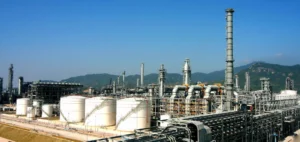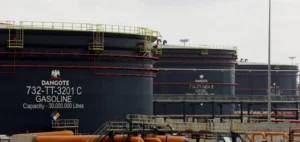The U.S. oil market is facing a new reality with the increasing lightness of WTI Midland, a benchmark oil produced in the Permian Basin. This crude, historically valued for its low sulfur content and compatibility with international standards, is becoming too light for current refining capacities, creating challenges for both U.S. and global refineries.
Refineries, particularly in Asia and Europe, prefer to process heavier crudes, which generate higher margins on products such as diesel or jet fuel. WTI Midland, with a density sometimes reaching 44 API degrees, is less suitable for these infrastructures. Refining units, often designed for heavier crudes, now require either blending with heavier oils or costly investments in technologies capable of processing lighter crudes.
Refineries Facing Increased Naphta Production
One side effect of this lightening is the increased production of naphta, a by-product used primarily in petrochemicals. Refineries, which are not always optimized for handling large volumes of naphta, could see their overall efficiency decrease. This would force costly adjustments, such as modifying or replacing existing processing units, directly impacting refinery margins.
This impact could be felt globally, especially in the petrochemical market, where an oversupply of naphta could lead to price drops. Consequently, profit margins on heavier petroleum products like diesel could decrease, reducing interest in light WTI.
Impact on Brent Oil Pricing
WTI Midland is a key component in determining Brent prices, the main global oil benchmark. If this trend towards lighter crude continues, demand for this oil could decline, putting downward pressure on Brent prices. Some analysts predict a potential price drop of about 50 cents per barrel unless a solution is found to adjust the WTI Midland quality to refinery needs.
Potential Solutions Under Study
Several companies are already seeking solutions to this issue. One option being considered is blending WTI Midland with heavier crudes like West Texas Sour. However, this may not be economically viable in the long term, given the high cost of heavier crudes. Another option could involve establishing a new standard for lighter crudes, allowing for better differentiation between oil types.
Consultations within the oil industry are ongoing to explore these solutions, but they will require significant investments in transportation and refining infrastructure.
An Uncertain Future for WTI Midland
The future of WTI Midland remains uncertain, and its continued success will depend on the industry’s ability to adapt to these changes. Producers in the Permian Basin, faced with the production of lighter oil, will need to find ways to optimize profitability while staying competitive on the global stage. Refineries will also need to invest in new technologies or infrastructure to maintain competitiveness.





















